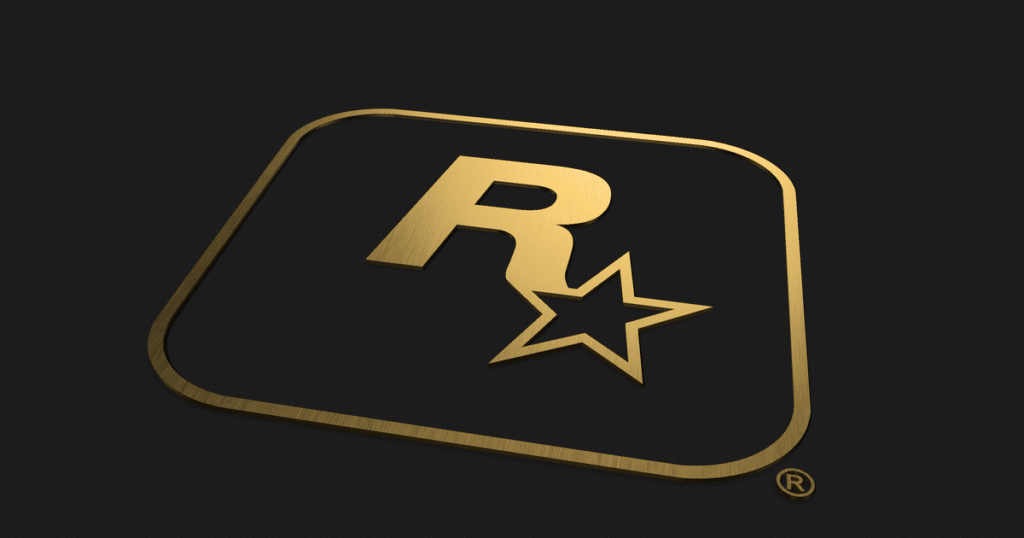With the engineering skills crisis worsening year on year, Morson Group has once again shown a proactive approach to tackling the problem by inspiring a new generation of engineers to become leaders in their field with their annual Early Careers Development Programme...
READ MORE…
Morson Group reports strong financial performance for year end 2023
Morson Group has recorded another record year as Group revenue jumped from£1,151.7m in 2022 to £1,332.9m in 2023, underscoring Morson’s ability to scaleits operations efficiently while maintaining high levels of service and client satisfaction. The Group also reported...
The Morson STEM Foundation Impact Report 2024
Our purpose is to positively impact lives every day, and every member of the Morson Group is driven to fuel innovation, empower industry and enable opportunities for people. The UK's ongoing STEM skills shortage has been estimated to cost the UK economy £1.5billion...
One of the most anticipated moments in video game (or indeed, entertainment) history happened on Tuesday 5th December 2023, with Rockstar Games unveiling the first official trailer for the next entry in the Grand Theft Auto series, GTA 6.
Well, that would have been the case, had the trailer for the game not been leaked the day before, forcing Rockstar into crisis mode as they attempted to realign their meticulously planned global marketing campaign timelines to adjust for the unexpected early release – the latest in a series of similar leaks that have plagued the closely-guarded development of the game in recent years.

With the previous instalment, GTA5, selling an estimated 190 million copies to date and becoming the second-best selling video game of all time (after Minecraft), the hype, anticipation and indeed the budget for the sequel has been unlike anything ever seen before. Couple that with the almost complete silence from Rockstar Games since the 2013 release of that game, and the tremendous success of their project in-between, Red Dead Redemption 2, and you can begin to see why the first trailer release broke YouTube records.
But aside from these headline-grabbing achievements, Rockstar Games has found itself in the news more in recent years because of something very different to an anticipated new release.
Behind the phenomenal success and acclaim of the company, headquartered in New York with notable studios in Edinburgh, London and San Diego, lie reports and allegations of a toxic culture at Rockstar that have surfaced over the years. These allegations have shed light on issues related to excessive crunch, lack of work-life balance, discrimination, and all-out harassment, issues that Rockstar is not alone in facing. In fact, it’s something that much of the tech industry has had to work on.
In this article, we take a look at the allegations of a toxic culture at Rockstar Games, the work that they have been forced to do in light of this, and why workplace culture is something all businesses must excel at in the fight for the best tech talent.
Crunch time at Rockstar Games
One of the most prominent issues in the supposed toxic culture at Rockstar Games has been the pervasive culture of crunch. Crunch refers to the practice of requiring employees to work long hours, often unpaid or under extreme pressure, to meet tight deadlines or milestones in game development. Reports emerged about developers working 100-hour weeks during the development of Red Dead Redemption 2, sparking controversy, and drawing attention to the company’s demanding work culture. This practice not only takes a toll on the physical and mental health of employees but also contributes to a high turnover rate within the company.
This crunch culture is deeply intertwined with the lack of work-life balance at Rockstar Games. Many employees reported feeling pressured to prioritise work over personal life, leading to burnout and mental health issues. The expectation of long hours and constant availability fosters an environment where employees struggle to maintain a healthy balance between their professional and personal lives.
A former employee stated that they had “worked 80 hour weeks at Rockstar until [they] had a breakdown. If I hadn’t, my contract would have been terminated.”
Former PR and social media employee Job Stauffer claimed in 2018:
“It’s been nearly a decade since I parted from Rockstar, but I can assure you that during the GTA IV era, it was like working with a gun to your head 7 days a week. Be here Saturday & Sunday too, just in case Sam or Dan [Houser, co-founders of Rockstar Games] come in, they want to see everyone working as hard as them”
Job stauffer, former PR and social media at Rockstar (2005-2010)

Sexism, discrimination and the ‘lads club’
Aside from the issues around crunch, there have been allegations of discrimination and harassment within the company. Former employees have spoken out about instances of sexism, homophobia, and racism in the workplace. These reports shed light on a toxic environment where marginalized groups feel undervalued, unwelcome, and unsafe.
A 2018 gender pay gap report on Rockstar North revealed that female staff were paid 64% less than male staff on average, with only 8% of the highest paid staff female.
Sources within the company also reported that the developer had a workplace culture of “drinking, brawling and excursions to strip clubs.”
The lack of proper mechanisms to address these issues further exacerbates the situation, leaving employees feeling unsupported and vulnerable.
How has Rockstar Games worked to change its toxic culture?
Rockstar Games’ management has faced criticism for its handling of these allegations. Critics argue that the company’s response has been inadequate and that a systemic change in the company’s culture is necessary to address the root causes of these problems. Despite public statements promising improvements, the recurrence of similar issues suggests that fundamental changes have yet to be implemented effectively.
The toxic workplace culture at Rockstar Games has not only affected current employees but has also tarnished the company’s reputation. It has led to negative publicity, affecting the perception of both consumers and potential employees. The gaming industry, which has increasingly focused on promoting healthier work environments, has scrutinised Rockstar Games for its failure to address these pressing issues adequately.
However, it is important to note that not all employees’ experiences at Rockstar Games have been negative. Some have praised the company’s dedication to creating innovative and groundbreaking games while acknowledging the challenges and sacrifices that come with game development. Additionally, there have been efforts to improve conditions within the company, such as implementing employee wellness programs and reevaluating work practices. In 2018, Rockstar North’s co-studio head Rob Nelson talked about the need to change the way they operate. While acknowledging that it was challenging to produce something as creative and ambitious as the titles Rockstar are known for, he admitted that progress was being made:
“[We are working] as best we can, and it’s something that we’re always striving to get better at. We’re growing as fast as we can, and we’re structuring our departments based on need, because we don’t want people working too hard. Do people work hard and is there overtime and extra effort put in? Yes, there is. Is it something we want happening regularly for long periods of time or as an accepted part of our process or as a ‘badge of honour’ thing? No, it is not. We are always trying to improve how we are working and balance what we are making with how we make it and we will not stop working to improve in this area”
Rob Nelson, Rockstar north
More recent noises from within the business suggests that, while not fully there yet, the company are indeed on the right track. The development time for GTA 6 has been much longer than many previous Rockstar titles, due in part to the reduction in crunch. Couple this with a restructuring of the design department and converting contractors to full time employees with additional leave benefits, it’s apparent that Rockstar Games is on a journey to change its culture for the better.
The next instalment of the series will also see a playable female character for the first time since the original Grand Theft Auto, released in 1997 and the first time in the 3D era. This is something that fans have been wanting for many years, with Rockstar listening to some of the criticism levelled at its previous titles.
The gaming industry continues to watch closely as Rockstar Games navigates the path toward meaningful cultural change within its organisation.

Why workplace culture is vital in the war for gaming tech talent
In recent years, the tech industry has seen a dramatic increase in the demand for skilled workers, due in part to a substantial skills gap. Thus, a tech talent war has heated up, with employers desperate to fill roles and candidates often able to negotiate inflated salary and benefits packages.
Video game companies like Rockstar have long relied on their employee’s innate passion for creating the games to keep them in their roles. While working for one of the most world-renowned companies on some of the biggest games ever released is certainly a positive, a poor culture at Rockstar could lead the best talent to look elsewhere, with many game developers, designers and coders more willing to pore their passion into indie titles at smaller companies, where they are less likely to be just one of many working on any project. Crucially, fostering a sesnse of inclusion and purpose, alongside work-life balance, is incredibly important to retaining the best the industry has to offer, as the video game industry grows and truly becomes part of the ‘Big Tech’ picture.
According to a survey by Bain & Company, 85% of people who exited gaming companies in the past five years remained in the industry. Their passion for creating games remains even when they decide that the company they’re working at isn’t for them. This should be an alarming stat for gaming companies, and an important lesson Rockstar must continue to build upon throughout the cycle of its next project and beyond.
Read our related article about the workplace culture at Brewdog here
Thinking about a career in tech but don’t know where to start? We’re passionate about creating pathways and opportunities in tech. Our Pathfinders Academt is focused on levelling up the skills landscape through training and re-skilling in digital and engineering disciplines. Learn more here
